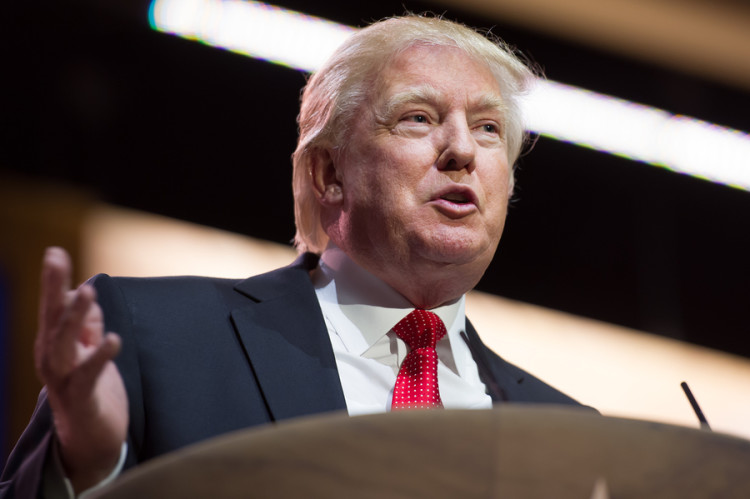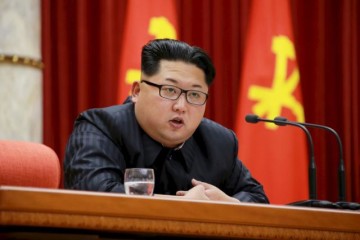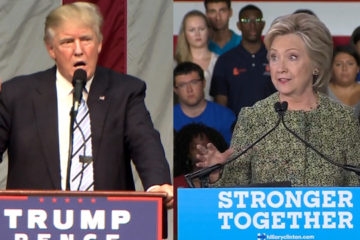Trump Said to Postpone Announcement on Future of Businesses

(Bloomberg) —President-elect Donald Trump is postponing until next month a previously announced news conference to outline how he’ll handle his far-flung business operations while in the White House, according to senior Trump transition officials.
Trump had planned to make the announcement Dec. 15 but wants more time because he’s been occupied with filling out his cabinet and top administration posts, according to the officials, who spoke on condition of anonymity to discuss internal deliberations. He said on Twitter Monday night that he’ll reveal his choice for secretary of state on Tuesday.
The president-elect has consulted various legal specialists as well as Don McGahn, his pick for White House counsel, about how to deal with his organization, the officials said. A new date for the announcement hasn’t been set, but it will be before his inauguration on Jan. 20, they said.
Trump has about $3.6 billion of assets and $630 million of debt held in more than 500 companies, according to a July analysis by Bloomberg. His golf developments, tenant rosters, loans and licensing arrangements tie him to businesses and governments in 20 countries. Those ties risk hobbling his presidency with questions about motives for his policy and may raise constitutional issues.
Bipartisan Concern
His businesses have been the subject of bipartisan concern since winning the election, and on Nov. 30 he said via Twitter that he would have a news conference Dec. 15 to announce his plans for dealing with potential conflicts of interest.
The president-elect tweeted that he would be leaving his business “in total” to focus on the White House. He added that “legal documents are being crafted which take me completely out of business operations,” suggesting he might not be participating in day-to-day to decisions but also didn’t necessarily suggest he was planning a sale.
Among those who’ve called on him to sell his companies to avoid conflicts are the ethics lawyers for the George W. Bush and Barack Obama administrations. Trump’s refusal to release his tax return has also added to concerns about his commitment to transparency. His next personal financial disclosure, a less detailed document, isn’t due until after he takes office.
Trump said in an interview with the New York Times last month that sitting presidents “can’t have a conflict of interest” because the laws don’t apply. While they are exempt from many government ethics laws, some do apply, as does a constitutional prohibition on income and gifts from foreign governments.
Even transferring ownership to his adult children is unlikely to quiet Trump’s critics. Norman Ornstein, a political scientist at the American Enterprise Institute, a conservative policy group in Washington, has said that Trump has a self-interest in enriching his children. Brad Malt, a partner at Ropes & Gray LLP in Boston, who managed Mitt Romney’s blind trusts during his time as Massachusetts governor, has said that Trump must sell.
Already, Trump’s daughter Ivanka, an executive in his organization, sat in on her father’s meeting with Japanese Prime Minister Shinzo Abe and participated in a phone call with Argentine President Mauricio Macri. Two other children, Don Jr. and Eric, also are Trump Organization executives who also have acted as informal advisers to their father throughout his run and the transition.
Trump has also met with Indian business partners since Election Day, and his partner in the Philippines was in Trump Tower while he was talking with potential appointees. The lease for his hotel in Washington appears to bar elected officials from profiting from the arrangement.
Trump’s transition team said Dec. 6 that the president-elect had sold all his stock holdings in June, though it gave no details. Trump said the stock ownership was “a conflict of interest.”
Wide Holdings
Trump has a variety of business interests beyond the real estate and licensing deals for which he’s best know. For example, he’ll remain an executive producer on the upcoming season of “The New Celebrity Apprentice,” the reality show in which he once starred. The show is broadcast on Comcast Corp.’s NBC, which is regulated by the Federal Communications Commission, whose leaders are political appointees. Trump has said he won’t spend any time working on the show, though he’ll be paid and get credited.
Estate planners say there are several structures Trump could use to create formal distance between himself and his companies while keeping them in the family. The president-elect could put his businesses into a limited-liability company and sell it to a trust for his children in exchange for a promissory note that would ensure him regular interest payments, said David Scott Sloan, co-chairman of Holland & Knight LLP’s national private-wealth practice. Alternatively, a bank could finance the deal by paying Trump cash and receiving the payments in his stead.
That wouldn’t solve concerns that Trump would work to benefit his children, or concerns that he’d talk to them about the business. For that latter problem, the family could appoint an independent trustee charged with enforcing strict confidentiality rules, said John Olivieri, a partner at White & Case LLP in New York.
Previous U.S. presidents and vice presidents have also grappled with how to deal with potential conflicts. Dick Cheney sold his shares in Halliburton Co., where he’d served as chairman and chief executive officer, prior to taking office. Jimmy Carter sold his family peanut farm in Georgia. Nelson Rockefeller subjected himself to congressional hearings and to investigation by 400 agents from agencies including the Federal Bureau of Investigation and the Internal Revenue Service.
A Bloomberg National Poll conducted Dec. 2-5 found that two-thirds of U.S. adults think Trump needs to choose between being president or a businessman. But slightly more — 69 percent — believe it goes too far to force him and his family to sell their business empire to avoid conflicts of interest.







No Comment